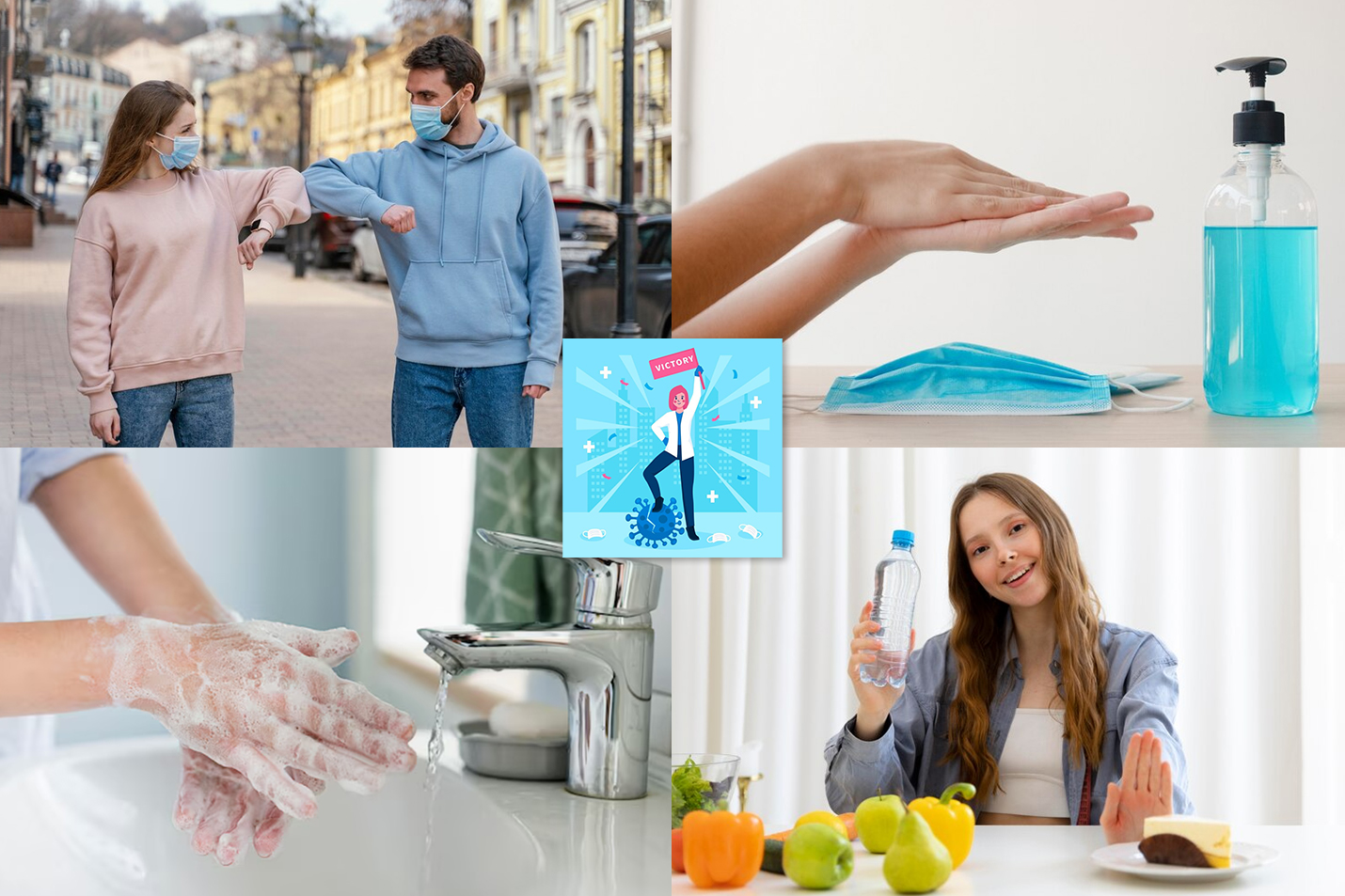Is Health Important Only During A Pandemic?
Not long ago, the world was stuck in the severity of a pandemic, causing us to realize the fragility of our health. This global wake-up call prompted us to think about the well-being of our loved ones. It compelled us to re-evaluate our routine habits, leading to a surge in consciousness regarding the relevance of good hygiene practices. Masks became a staple, and sanitizers transformed from an occasional accessory to a constant companion.
However, the hard-hitting reality faded away pretty soon. Those masks and sanitizers took the backseat as we went back into a normalized situation. And even though many of us still feel the occasional low immunity and frequent cough/cold-like symptoms, we refuse to give in to the fact that our hygiene habits and daily routine has something to do with it.
Recently, China has been subdued by another pandemic-like situation jolting the painful memories of Covid-19. The massive outbreak of atypical Pneumonia, commonly known as walking Pneumonia, has affected millions in the country; And it is more likely to spread worldwide.
A crucial fact here is that an outbreak does not come with a disclaimer. Right when we are least bothered about a health crisis, one can knock on our door unannounced. I’m not trying to scare you or something. But I feel that it is our responsibility as a community to curb the spread of any such disease that can become a global emergency.
Let us first understand some more facts about this milder Pneumonia known as atypical or walking Pneumonia.
What is Walking Pneumonia and its symptoms?
Walking pneumonia is a mild respiratory or lung infection that does not require hospitalization or bed rest. A person suffering from this infection will be able to walk and do regular activities normally, which is why it was named ‘walking’ pneumonia.
This bacterial infection is hard to detect at early stages since its symptoms mimic a common cold. This includes a persistent cough, chest discomfort induced by coughing, sore throat, runny nose, fever, headache, mild chills and ear pain. Usually, these symptoms surface within 2-3 weeks of infection and can persist for up to several weeks, with the cough potentially staying with you for months.
Although it is a milder version of Pneumonia, it can be stealthily contagious and make the patient miserable. You might be able to walk and go about doing your daily chores, but it does not mean that you should. Controlling a disease before it becomes a pandemic is in the hands of each one of us.
Transmission & Who is the most Susceptible?
The most common targets are children aged 5 to 15, who often bring the infection home from school and transmit it among family members. The infection primarily spreads through airborne droplets that a person creates during coughing, sneezing or sometimes even while they speak. It is important to understand that an affected individual can still be contagious even though their symptoms have subsided, posing a risk to especially those with weakened immunity.
Do you need immediate medical attention?
People experiencing walking Pneumonia do not usually require immediate medical attention as their symptoms are mild in nature. You can keep yourself comfortable by taking proper rest and consuming abundant liquids. Typically, healthcare providers refrain from prescribing antibiotics unless they diagnose a more severe form of Pneumonia or maybe some other significant infection. Some over-the-counter antibiotics or cough medicines can also help ease discomfort. But make sure you consult a healthcare professional before giving any of these medications to a child.
How to Prevent Such Infections?
Now that you know about walking Pneumonia more clearly, it is time to understand the measures that can help reduce its spread.
- First of all, it is highly crucial to practice regular hand hygiene. Wash your hands with soap & water. And if water is not available, you can always keep a sanitizer with you. It is your pocket-size health guard.
- Also, avoid sharing things like utensils, cups, etc, as they can easily spread germs.
- In addition, follow proper coughing and sneezing etiquette. Cover your mouth with a tissue or use your elbow to cover your cough or sneeze to prevent the spread of airborne droplets.
Remember, your health is your strength. So why wait for a pandemic to teach you good hygiene practices? Inculcate the habit of washing your hands frequently or using a sanitizer to keep yourself clean and germ-free. Also, maintain a healthy lifestyle. Eat good food, drink plenty of fluids, and avoid getting in contact with people unnecessarily. After all, cleanliness is the first law of health.
-Manu Singh
